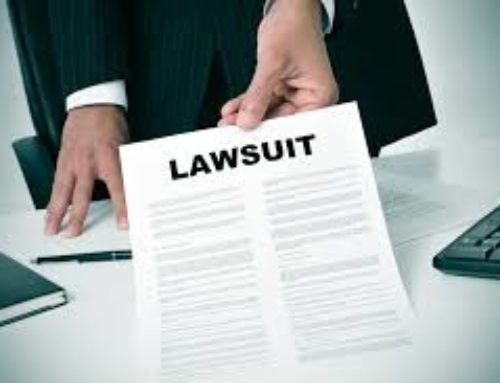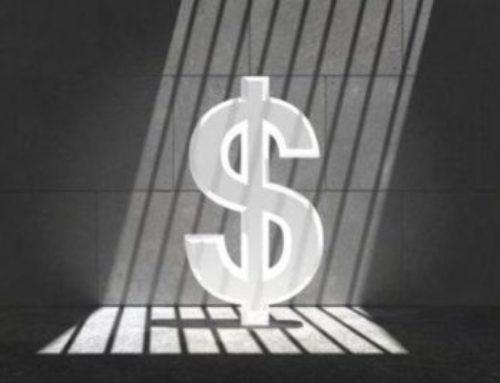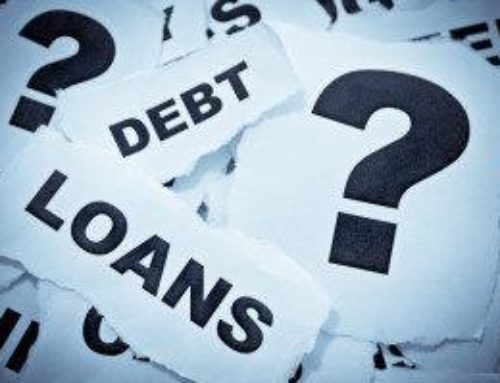 Many of the Oregonians who come to us to file bankruptcy have been harassed by debt collectors for year. A significant portion of them are unaware that not only is there a mechanism for stopping many of those debt collectors in their tracks, but there is also a chance for a significant recovery for their troubles.
Many of the Oregonians who come to us to file bankruptcy have been harassed by debt collectors for year. A significant portion of them are unaware that not only is there a mechanism for stopping many of those debt collectors in their tracks, but there is also a chance for a significant recovery for their troubles.
The Fair Debt Collections Practices Act provides expansive protections to Oregon and Washington consumers with respect to illegal collections actions. I am happy to say that since it was enacted, I have seen a decline in violations among local Oregon and Washington collectors. But then there is the rest of the country.
Unfortunately it is next to impossible to pursue some of the worst violations under the Act because the collector may either not be in the country or the violation might be committed by a couple criminals sitting in a boiler room in New Jersey. The bad news is getting a judgment against people like that it pretty much uncollectible. The good news is these collectors are all talk and don’t have the wherewithal to actually pursue a collection in court.
Violations still take place though and it is important to understand what passes muster under the Act so that collectors can be stopped, violations can be pursued and money damages obtained Under the FDCPA, a debt collector is someone who regularly collects debts owed to others. This includes lawyers who regularly collect debts, collection agencies, lawyers who collect debts and companies that purchase past due debts and then try to collect them. Here are some questions and answers about the Act.
 Can a debt collector contact me at will?
Can a debt collector contact me at will?
No. A debt collector may not contact you at inconvenient times or places. Unless you agree to the contact before eight in the morning or after one at night would violate the Act. Moreover, a collector may not contact you at work once they’re informed that you’re not allowed to take calls there.
Debt collectors can contact you to collect a debt, as long as they heed the rules and disclose that they are debt collectors. It violates the law for a debt collector to pretend to be someone else – like an attorney or government agency – or to harass, threaten or deceive you.
What sorts of debts are covered?
The Act covers personal debts like your credit card, your car loan, a medical bill or your mortgage. The FDCPA doesn’t cover business debts.
How can I stop a debt collector from contacting me?
If you decide after communicating with a debt collector that you don’t want the collector to contact you again, inform the collector in writing to stop contacting you. Write a letter and make a copy of it. Send the original by certified mail, and pay for a “return receipt” so you’ll be able to document what the collector received.
Once the collector receives your letter, they may not contact you again, with two exceptions: First, a collector can contact you to acknowledge that there will be no further contact. Second, the collector may contact you to inform you that they or the creditor intend to take a specific action, like filing complaint. Sending such a letter to a debt collector you owe money to does not get rid of the debt, but it should stop the contact. The creditor or the debt collector still can sue you to collect the debt.
Can a debt collector contact anyone else about my debt?
If a lawyer is representing you regarding the debt, the debt collector must contact the lawyer, rather than you. If you don’t have a lawyer, a collector may contact other people – but only to find out your contact information and where you work.
Collectors usually are barred from contacting third parties more than once. Other than to obtain this location information about you, a debt collector generally is not allowed to discuss your debt with anyone other than you, your spouse or your lawyer.
What does the debt collector have to tell me about the debt?
Every collector must send you a written “validation notice” telling you how much money you owe within five days after they first contact you. This notice must include the name of your creditor, and how to proceed if you don’t think the debt is legitimate.
Can a debt collector keep contacting me if I don’t think I owe any money?
If you send the debt collector a letter stating that you don’t owe any or all of the money, or asking for verification of the debt, the collector must stop contacting you. You have to send that letter within 30 days after you receive the validation notice. But a collector can start contacting you again if it sends you written verification of the debt, like a copy of a bill for the amount you owe.
What actions are off limits for debt collectors?
Harassment. Debt collectors may not harass, oppress, or abuse you or any third parties they contact. For example, they may not:
- repeatedly use the phone to annoy you.
- use physical threats;
● use obscenities
- Debt collectors may not lie when they are trying to collect a debt. For example, they may not falsely claim they are with the government or that they are lawyers
● falsely claim that you have committed a crime;
● falsely represent that they work for a credit reporting company;
● misrepresent the amount you owe;
● falsely describe paperwork they send you as legal forms
● give false credit information about you to anyone, including a credit reporting company;
● send you a false official document from a court or government agency
● use a false company name.
● try to collect any charge of any kind on top of the amount you unless the agreement that created your debt or Oregon law allows the charge;
● deposit a post-dated check early;
● take or threaten to take your property unless it can be done legally; or
● contact you by postcard.
Do I have any recourse if I think a debt collector has violated the FDCPA?
If a collector violates your rights under the FDCPA, you should see an attorney to determine your legal rights. We have sued numerous collectors in both Oregon and Washington and obtained recoveries for our clients. If your rights have been violated under the FDCPA and there is a potential recovery, this has repercussions if you are contemplating bankruptcy.
A potential FDCPA recovery should be listed and protected as an asset in your bankruptcy filing to make sure that when you do sue the collector, you will be able to keep all the damages.
You have the right to sue a collector in a state or federal court within one year from the date the Act was violated. If you win, the judge can require the collector to pay you for any damages you can prove you suffered because of the illegal collection practices, like lost wages and medical bills.
The judge can require the debt collector to pay you up to $1,000, even if you can’t prove that you suffered actual damages. You also can be reimbursed for your attorney’s fees and court costs. Even if a debt collector violates the FDCPA in trying to collect a debt, the debt does not go away if you owe it. What should I do if a debt collector sues me? If a debt collector files a lawsuit against you to collect a debt, respond to the lawsuit, either personally or through your lawyer, by the date specified in the court papers to preserve your rights.
If you believe that your rights have been violated under the FDCPA, please book an appointment at the Salem, Portland, Sandy or Vancouver office so that we can stop the collector and protect your right to recovery. Again, we have successfully sued multiple collectors across both Oregon and Washington and in so doing punished collectors and obtained thousands of dollars for our clients.










